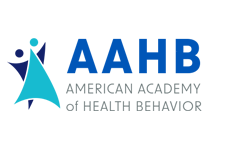Abstract
This study aimed to investigate the protective effect of family functioning, social capital, and civic engagement on mental health in adolescents with adverse childhood experiences (ACEs). Parents of adolescents aged 12 to 17 years (N = 20,708) who participated in the 2015-2016 National Survey of Children’s Health were surveyed about their children’ ACEs (e.g., parental divorce, being a victim of violence, living with anyone who had substance abuse) and current mental health disorders, including depression, anxiety, and behavioral problems. Parents were further asked about their family functioning, perceived social capital, and adolescents’ civic engagement. Structural equation modeling was conducted to test the hypothesized pathways using Mplus 8.0.Based on parents’ report, about 55% of adolescents have experienced at least one kind of ACE. The final structural model proved an excellent fit to the data (CFI = 0.96, RMSEA = 0.009, WRMR = 1.12). A significantly positive relationship was found between adolescents’ ACEs and current mental disorders (β = 0.13, p < 0.05), and the effect was partially mediated by family functioning (β = 0.10, p < 0.001) and civic engagement (β = 0.01, p < 0.05), but not by social capital (β = 0.01, p = 0.12). Low household income (β = -0.24, p < 0.001) and low parent education (β = -0.05, p < 0.05) significantly increased adolescents’ likelihood of having ACEs. Early assessment and interventions for children with ACEs are necessary to prevent the development of mental disorders in adolescence, especially for minority adolescents and those of low socioeconomic status. Safe, nurturing, and supportive home and social environments can help mitigate the detrimental impact of childhood adversity.
Creative Commons License

This work is licensed under a Creative Commons Attribution-Noncommercial 4.0 License
Recommended Citation
Lu, Wenhua and Xiao, Yunyu
(2019)
"Adverse Childhood Experiences and Adolescent Mental Disorders: Protective Mechanisms of Family Functioning, Social Capital, and Civic Engagement,"
Health Behavior Research:
Vol. 2:
No.
1.
https://doi.org/10.4148/2572-1836.1035




